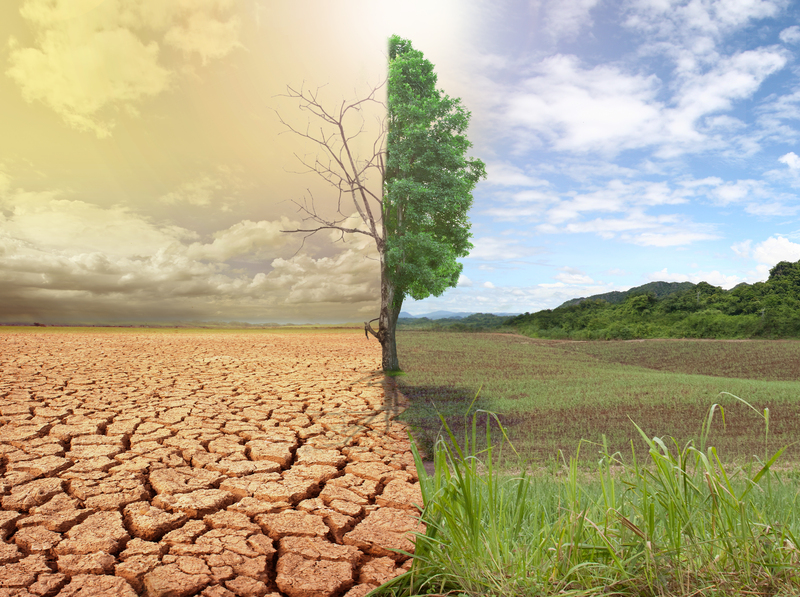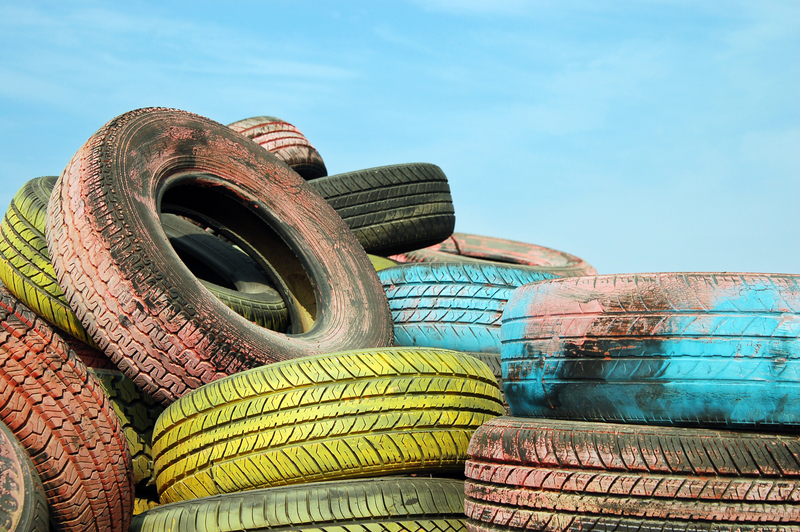Expert Advice for Elevating Your Home Recycling Game
Recycling at home has never been more important. With increasing environmental concerns and growing waste management challenges, households worldwide are seeking innovative ways to recycle better and smarter. If you're ready to elevate your home recycling game, you've come to the right place. In this comprehensive guide, you'll find expert tips, actionable steps, and unique strategies to help your household become a champion recycler.
Why It's Time to Upgrade Your Recycling Routine
Every piece of waste properly sorted and recycled reduces landfill burden, conserves raw materials, and lessens pollution. But successful residential recycling goes beyond tossing cans in a blue bin. Modern recycling demands awareness, organization, and a dash of creativity. Here's why improving your home recycling efforts matters:
- Reduces Environmental Impact: Recycling keeps materials out of landfills and reduces the need for virgin resources.
- Saves Energy and Water: Producing goods from recycled materials uses less energy and water compared to using raw resources.
- Supports the Circular Economy: Proper recycling feeds valuable materials back into the production cycle.
- Contributes to a Cleaner Community: Neighborhoods with efficient recycling systems see less litter and waste-related pollution.

Understanding the Basics: What Can and Can't Be Recycled at Home
Before becoming a recycling pro, it's essential to know the common dos and don'ts of home recycling. Misplaced items in recycling bins--referred to as "wishcycling"--can contaminate whole batches. Avoiding this trap is the keystone of effective recycling.
What You Should Recycle
- Paper and Cardboard: Newspapers, magazines, office paper, cereal boxes, and shipping cartons (flattened).
- Plastics: Numbered plastics are generally recyclable, especially bottles, jars, trays, and tubs. Always check the local guidelines.
- Metal: Aluminum cans, tin cans, and clean foil are perfect candidates.
- Glass: Bottles and jars, rinsed and with lids removed.
What You Should Not Recycle
- Plastic bags and film: These jam recycling machinery. Take them to store-specific collection points.
- Greasy food containers: Pizza boxes with oil stains should go in the trash or composted if only the unsoiled parts are recyclable.
- Styrofoam: Most municipal programs do not accept it.
- Ceramics, light bulbs, and mirrors: These are not compatible with standard glass recycling streams.
Pro Tips for Sorting and Storing Recyclables
Mastering sorting and storage is key to elevating your home recycling. Here's how experts recommend streamlining the process:
1. Set Up an Efficient Recycling Station
- Location is everything: Place your bins where waste is generated--kitchen, bathroom, and home office.
- Label clearly: Use large, colorful labels with visual cues for each bin, making it straightforward for everyone.
- Keep it neat: Use stackable bins or a multi-compartment system to save space and sort easily.
2. Cleanliness Counts
- Rinse all containers: A quick rinse prevents contamination and deters pests.
- Remove food residue: Scrape stubborn remnants before recycling. No need to wash perfectly--just make sure it's free from visible residue.
3. Flatten and Break Down
- Collapse boxes: Flatten cardboard boxes to optimize space and facilitate processing at facilities.
- Squeeze bottles: Compress plastic containers to fit more in your bin.
Expert Strategies to Go Beyond the Basics
If you've got the basics down, it's time to take your recycling practices to the next level. Check out these expert-recommended approaches for home recycling improvement:
1. Know Your Local Program Inside Out
- Read local guidelines: Municipalities have unique recycling streams--study yours to minimize contamination.
- Use official resources: Download local recycling guides and bookmark your hauler's web pages for quick access.
2. Dive Into Specialized Recycling
- Electronics: Utilize e-waste events for old gadgets, batteries, and cords. Never toss these items in household bins.
- Textiles: Drop worn clothes or linens at textile recycling bins or donation centers instead of sending them to landfill.
- Toxic materials: Paint, bulbs, and chemicals often have dedicated drop-off sites--never put them with regular recyclables.
3. Start Composting Organics
- Cut landfill waste: Compost fruit and vegetable scraps, coffee grounds, and egg shells. Composting reduces methane emissions from landfills and produces nutrient-rich soil for your plants.
- Invest in a kitchen composter: Choose from countertop, tumbling, or outdoor piles based on your space.
4. Recycle While Shopping
- Choose recyclable packaging: Prefer products with minimal, recyclable, or compostable packaging when making purchases.
- Bring your own bags: Reusable bags reduce single-use plastic and the chance of "bag contamination" in household bins.
Addressing Common Home Recycling Mistakes
Improving at-home recycling also means learning from errors. Here are the top mistakes and expert fixes to avoid:
- Wishcycling: Hoping something is recyclable doesn't make it so. Always verify before tossing it in the recycling.
- Bagged recyclables: Most programs reject materials in plastic bags. Always empty items directly into your bin.
- Forgetfulness: Bathroom items like shampoo bottles and toilet paper rolls are often forgotten--collect them along with kitchen recyclables.
- Neglecting hazardous waste: Batteries, electronics, and chemicals contaminate recycling and harm processing plants. Handle these separately.
The Role of Education and Family Involvement
Building a recycling-savvy household is much easier when everyone's on board. Experts stress the importance of communication and education at home:
- Involve everyone: Assign recycling tasks to family members, making it part of your regular routine.
- Make it fun: Use games and rewards to inspire younger household members.
- Stay updated: Attend community workshops or join local eco-groups to learn new recycling tips and updates in your area.
Innovative Tools to Help You Recycle Better
In the digital age, there's no need to go it alone. Here are highly rated tools for enhancing your home recycling strategy:
Apps and Smart Devices
- Recycling search apps: Apps like iRecycle, Recycle Coach, or your local authority's app detail what goes where, specific to your region.
- Smart bins: Some smart kitchens now feature sensor-triggered bins that help sort recyclables from trash on the spot.
Online Forums and Support
- Connect with others: Reddit's r/ZeroWaste or local Facebook groups can provide support, inspiration, and troubleshooting for tricky recycling questions.
Advanced Tips for Seasoned Home Recyclers
If you consider yourself an advanced recycler and want to supercharge your household's sustainability, consider these practices:
- Upcycle creatively: Turn glass jars into storage containers or old T-shirts into cleaning rags.
- Host a recycling drive: Organize neighbors or friends to responsibly dispose of hard-to-recycle items together.
- Support companies with green initiatives: Look for brands actively participating in closed-loop recycling systems or offering take-back programs.
- Strive for zero waste: Set a family challenge--track your landfill waste to find new areas for improvement.

Frequently Asked Questions (FAQs) About Home Recycling
-
Should I wash my recyclables before putting them in the bin?
Yes, a quick rinse is all that's required. Completely clean items help prevent contamination. -
What do recycling numbers on plastics mean?
These numbers (1-7) refer to the plastic resin type and some are easier to recycle locally than others. Check your area's guidelines. -
Is it bad to put glass in the recycling?
Only if it's clean, unbroken household glass (like jars and bottles). Ceramics, Pyrex, and light bulbs should stay out. -
Are compostable plastics recyclable?
No, compostable plastics (often PLA) belong in commercial composting, not your curbside recycling bin.
Conclusion: Your Next Steps to Elevate Home Recycling
Elevating your household recycling is a journey of continuous learning, small changes, and family participation. With expert advice and the right tools, your home can make a substantial positive impact--reducing landfill waste, conserving precious resources, and inspiring your community. Start with the basics, upgrade your strategies, and celebrate every positive step. The planet (and future generations) will thank you!
Ready to be an expert at home recycling? Start today with at least one of the strategies above, and watch your recycling game soar!